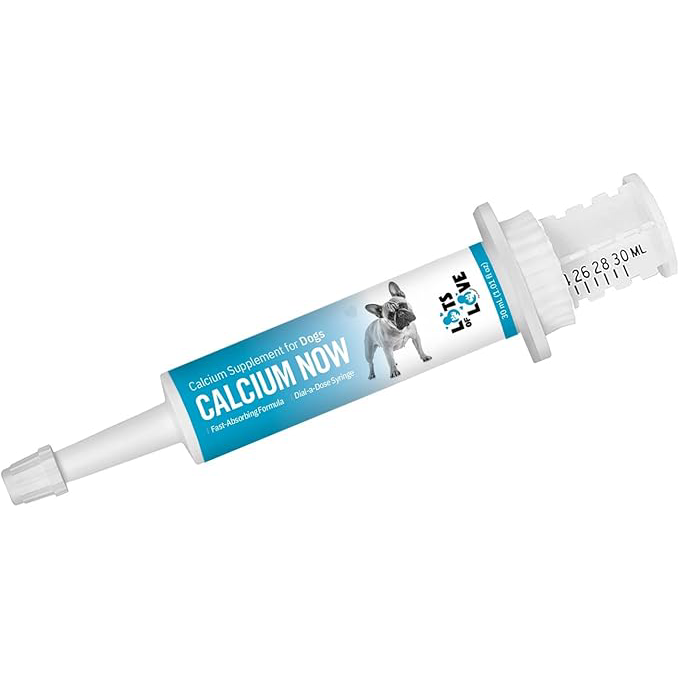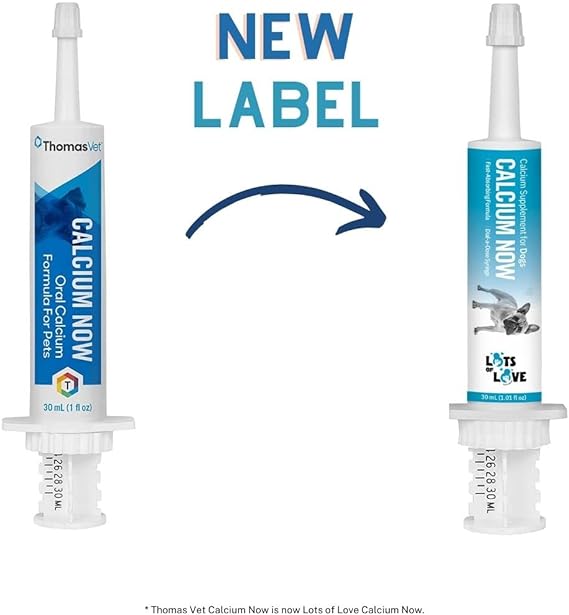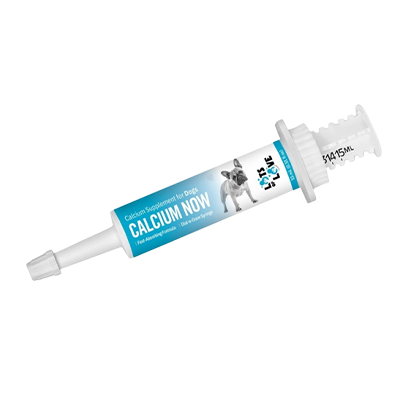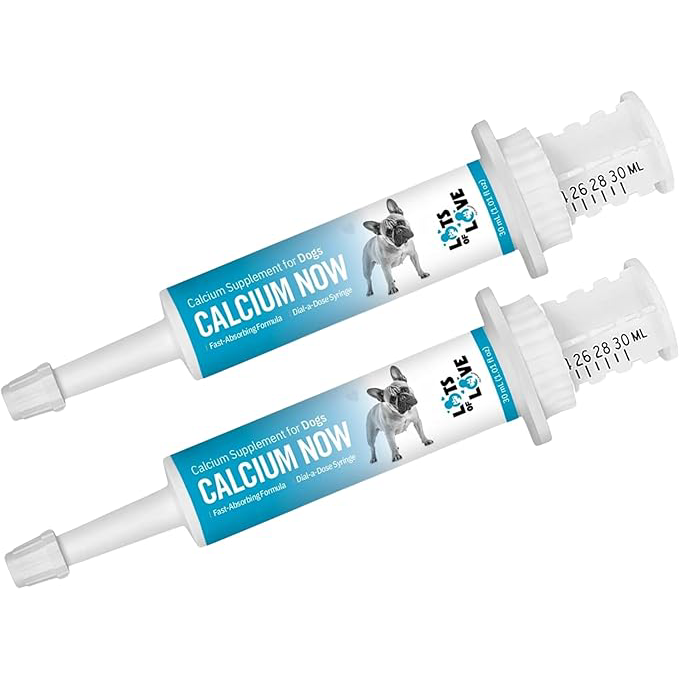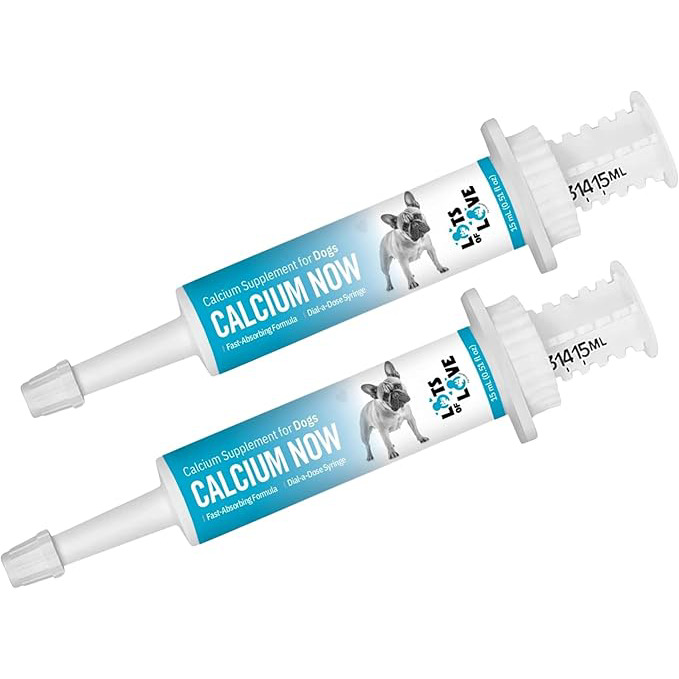We all know that calcium is important for growing strong bones and teeth, but it’s also necessary for other vital bodily functions like blood clotting (blood coagulation) and muscle contractions. When the body doesn’t receive enough calcium, it can lead to calcium deficiencies and other health-related issues.
Hypocalcemia in dogs occurs when calcium levels in the blood are lower than normal. Because calcium plays many important roles within the body, having a calcium deficiency is a serious problem. It can cause muscle spasms, weakness, behavior changes, and even seizures.
Watching your dog develop symptoms of calcium deficiency can be scary and concerning. Getting a proper diagnosis and starting treatment immediately is essential for your pet’s overall health.
Causes of Hypocalcemia in Dogs
There are various causes of hypocalcemia in dogs. According to PetMD, more than 50% of hypocalcemia cases are caused by a condition called hypoalbuminemia, which is a drop in albumin, a protein found in the blood. Because much of the calcium within the body is linked to albumin, when albumin levels fall, it results in a drop in calcium levels. Milk Fever is a common cause in nursing female dogs shortly after giving birth. The demands of lactation can deplete calcium stores, leading to hypocalcemia.
Here are some additional causes of hypocalcemia in dogs:
- Kidney failure (renal failure)
- Pancreatitis
- Parathyroid gland failure
- Eclampsia or puerperal tetany
- Alkalosis
- Hypoparathyroidism
- Poor nutrition (nutritional secondary hyperparathyroidism)
- Poor calcium absorption in the gut
- Oxalate toxicity
- Hypomagnesaemia (low levels of magnesium in the blood)
- Rickets
- Phosphate enema toxicity
- Citrate toxicity
- Antifreeze poisoning
- Trauma
Symptoms of Hypocalcemia in Dogs
Symptoms of hypocalcemia in dogs can vary based on the cause and severity of the condition. In some cases, if the condition is mild, dogs may not show any symptoms until their calcium levels fall very low. Clinical signs include:
- Muscle tremors, twitching, or spasms
- Panting
- Stiff gait
- Face rubbing against objects
- Trembling
- Weakness
- Changes in behavior
- Vomiting
- Lack of appetite
- Fever
- Seizures
If your furry friend is showing signs of hypocalcemia, you should consult your veterinarian immediately for a proper diagnosis. A blood test can confirm if your pet has low calcium levels. If hypocalcemia is confirmed, your vet will run additional tests to assess the health of the pancreas, kidneys, parathyroid glands, and digestive system.
Treating Hypocalcemia in Dogs
The goal of treating hypocalcemia in dogs is to restore blood calcium levels to normal. Treatment will vary based on the underlying cause. If an underlying cause can be identified, it should be addressed and corrected.
Calcium supplementation is often needed to treat hypocalcemia in dogs. If your dog is having seizures or has dangerously low calcium levels, slow intravenous calcium therapy will be used to bring the calcium levels back to normal. Intravenous calcium must be administered slowly to prevent complications like cardiac arrest. After IV therapy, your vet may recommend continuing to supplement with calcium.
In mild cases, oral calcium supplementation may be recommended for treatment. Sometimes vitamin D supplementation is also necessary to increase calcium absorption from the intestines.
Some dogs may need long-term therapy with oral calcium and vitamin D supplementation to avoid a relapse. Finding the right calcium supplement for your pet is essential. Calcium supplements aren’t all created equal, so it’s important to do your research!
Lots of Love Pet Products – Calcium Now
As calcium deficiency often requires fast-absorbing calcium, Lots of Love Pet Products created Calcium Now (Earlier Thomas Labs Calcium Now), a fast-absorbing, oral calcium formula for pets showing signs of calcium deficiency. It is fortified with magnesium and vitamins D, C, and B6 to enhance calcium absorption and utilization. Calcium Now contains three forms of calcium to ensure it is easily and rapidly absorbed, making it ideal for pets that require a quick dose of calcium. The addition of essential minerals and antioxidants helps support a healthy immune system.
Hypocalcemia in dogs is a serious condition that can cause some scary symptoms. Recognizing the signs and getting prompt treatment for hypocalcemia will help return your dog to good health!
It’s important to note that while calcium supplementation is crucial for treating hypocalcemia, the dosage and form of calcium should be determined by a veterinarian. They can assess the severity of the condition, monitor blood calcium levels, and prescribe the appropriate treatment plan to ensure the dog receives the correct amount of calcium needed for recovery and maintenance of health.
You can buy calcium now from our Amazon store.

 DOG HEALTH SUPPLEMENTS
DOG HEALTH SUPPLEMENTS DOG DIGESTIVE SUPPLEMENTS
DOG DIGESTIVE SUPPLEMENTS EYE & EAR DROPS
EYE & EAR DROPS SKIN & COAT SUPPLEMENTS
SKIN & COAT SUPPLEMENTS CAT SUPPLEMENTS
CAT SUPPLEMENTS
